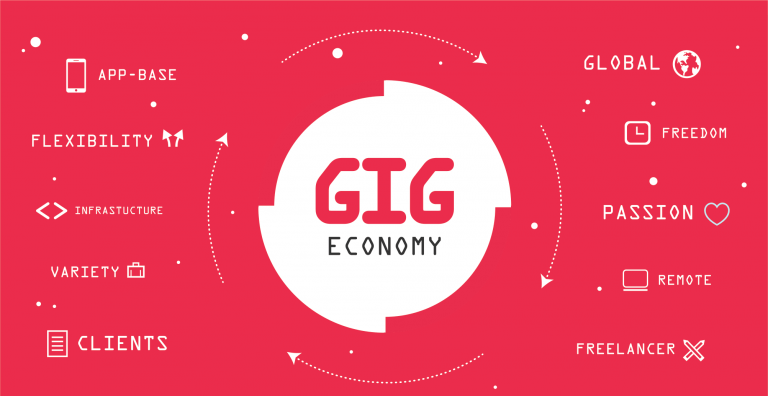The way we work is rapidly changing in the century. The key to survival for both an employer or an employee is mastering the gig economy.
Today, a large portion of the population earns at least some of their income from freelance GIGS – jobs without a traditional employer, and usually completed on a case-by-case basis. The internet and the proliferation of personal computers and tablets have made workers to take control over their work schedule and their skill set.
While this gig economy is a novel and a great fit for many, it has its own challenges and new developments that are a struggle for both employee and employers to master in this field. However, for anyone looking to do business in the years to come, learning how to master the gig economy is a worthwhile endeavor.
Gig economy benefits
The biggest advantage to the development of economy is the new freedom that it provides workers open terms of mobility and payment. It also directly counters the traditional 9 to 5 work mentality. These days, freelancers can do their work at any time of day depending on their exact job and profession. They can set their own schedules. In a society that is increasingly recognizing the value of mental health and the strain of traditional employment, being able to take time off whenever you need, and without having to ask your boss first, is an advantage. In essence, the gig economy theoretically presents a better work life balance for many.
Hurdles in this gig economy
Being a freelancer means giving up some privacy, as you have to be able to be found by clients- that is freelancers are having to learn quickly that many of their excellent privacy tools for browsing are useless when it comes to their business, so their digital footprint is more easily tracked. Finally, freelancers also face the fact that they may have less job security I the gig economy, which can be quite stressful and difficult to manage.
To thrive in the gig economy- there are still ways that freelancers and those who hire them can master the gig economy.
For freelancers:
Freelancers can better thrive within this new economy by using a great job marketplace specifically for freelancers and employers. But they can also succeed by focusing on a specific niche instead of trying to become a Jack of all trades in their field, or by targeting needed freelancer skills.
The truth is that there are many people who have a set of generalist skills all competing for low-wage jobs on freelance platforms. Developing a specific and educated skill set will allow you to separate yourself from the pack.
This process doesn’t happen overnight. But building a reputation of being able to work independently in a remote environment and specializing in a subset of your field might be more valuable in the long run. You’ll be able to demand more for your services, as an example, as there are fewer specialized experts in a field than there are generalists. The gig economy is changing how careers work, so lean into this development and specialize.
For employers:
Employers have to keep in mind that freelance workers are here to stay. So, those employing them should always review the portfolio of those they intend to hire before pulling the trigger.
Any freelance worker worth your time will have a portfolio or at least a few sample projects for you to use as you look for the right man or woman for the job. You can also ask for a sample directly, although these are usually small in scale or content.
In addition, freelance employers and their workers will both benefit from drawing up detailed contracts for each and every job you order. Be transparent and clear with your expectations and goals, rather than relying on assumption and hoping that your freelancer understands what you intend. Not only does this lower the likelihood of simple mistakes but it also makes finalizing the bill for their service much more direct.
Conclusion
Overall, the gig economy is transforming the way we do business, both as employers and freelancers. Like all economic development throughout history, it’s been accompanied by no shortage of struggles and confusion. But this new and agile way of doing business has the potential for greatness and for better mental health all around if we learn to master its unique needs and difficulties.
Meet the future head-on and master the gig economy. You’ll be glad you did early on, while it was still developing, rather than be left behind by everyone else

